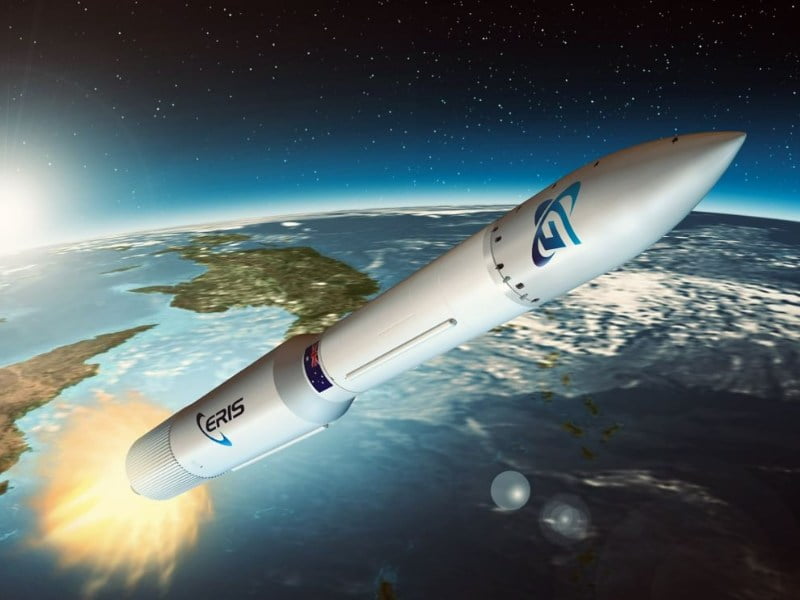Queensland-based Gilmour Space Technologies has signed a collaboration arrangement with Spanish SENER Aeroespacial to build a safety system into Gilmour rockets that can autonomously terminate a space flight.
The Autonomous Flight Termination System (AFTS) is being developed for use on Gilmour’s Eris launch vehicle, which is on track for its first launch in the second half of this year. The rocket is designed to launch a payload of up to 305kg into low Earth orbit, and will be launched from a site at Abbot Point near Bowen in Queensland.
Booked onto this first flight is a space platform from Sydney-based Space Machines Company. Gilmour Space Technologies have stated they also have a number of other domestic customers but that a majority of their customers are international.

SENER is responsible for developing the software necessary to collect and analyse the parameters, building on its NAVIGA hybrid navigation unit which has been used in the European Space Agency’s VEGA-C launch vehicle. Gilmour has already developed the vehicle management hardware that the AFTS will be deployed through.
When deemed unsafe, the AFTS secures the rocket through thrust termination: that is, switching off the rocket propulsion to isolate it from the control systems. The vehicle then falls back to Earth or burns up on re-entry to the atmosphere.
According to modelling conducted by Gilmour and an external expert, the risk of falling debris which may be caused by the AFTS is within the required limits set by the Australian Space Agency.
Successful development of the AFTS could replace the need for legacy systems that require costly land-based facilities and manual termination of a mission. This has the potential both lower costs but increase versatility by making launches from non-traditional launch centres feasible.
Eris Program Manager David Doyle sang praises about the Australian space ecosystem, but also implored the government boost its support for the sector.
“It would be fantastic if we saw an increased level of investment directly into space industry and specifically in the development of sovereign launch capability to capitalise on that export market as well as providing a strong, reliable and consistent launch capability for defence here in Australia,” Mr Doyle said.
“We don’t want to see our government defence forces end up at the back of the queue, waiting for launch slots from other countries and launch providers that are predominantly foreign government owned.
“What we do here is not just about driving a commercial outcome. It’s about inspiring the nation and inspiring all generations to think big and have a go at what is seemingly impossible and for us to be known as a leading innovative technology country on the world stage.”
Gilmour Space chief executive Adam Gilmour welcomed the collaboration with SENER and set his sights on the upcoming launch.
“It’s great to be working with SENER Aeroespacial, an established space company with a strong track record for delivering high-performance systems. Given the progress, we’re confident that we will have a robust AFTS ready for our first Eris rocket launch in the second half of 2022,” Mr Gilmour said.
SENER Aeroespacial Director of Institutional Programs Augusto Caramagno said the collaboration with Gilmour would continue to build on the firm’s expertise.
“This new contract reinforces our position as a leader in a growing market in Europe, that of medium-cost space systems that offer good performance and high reliability,” Mr Caramagno said.
“The AFTS is also joining our portfolio of highly critical onboard systems within the PNT (Positioning, Navigation and Timing) strategic line, where SENER Aeroespacial has considerable experience and has achieved a competitive advantage.”
An orbital launch attempt of a vehicle similar to Eris took place in September 2021 by Taiwanese TiSPACE. However, the vehicle failed to launch from the site in South Australia after an internal fault set fire to the vehicle.
Do you know more? Contact James Riley via Email.

